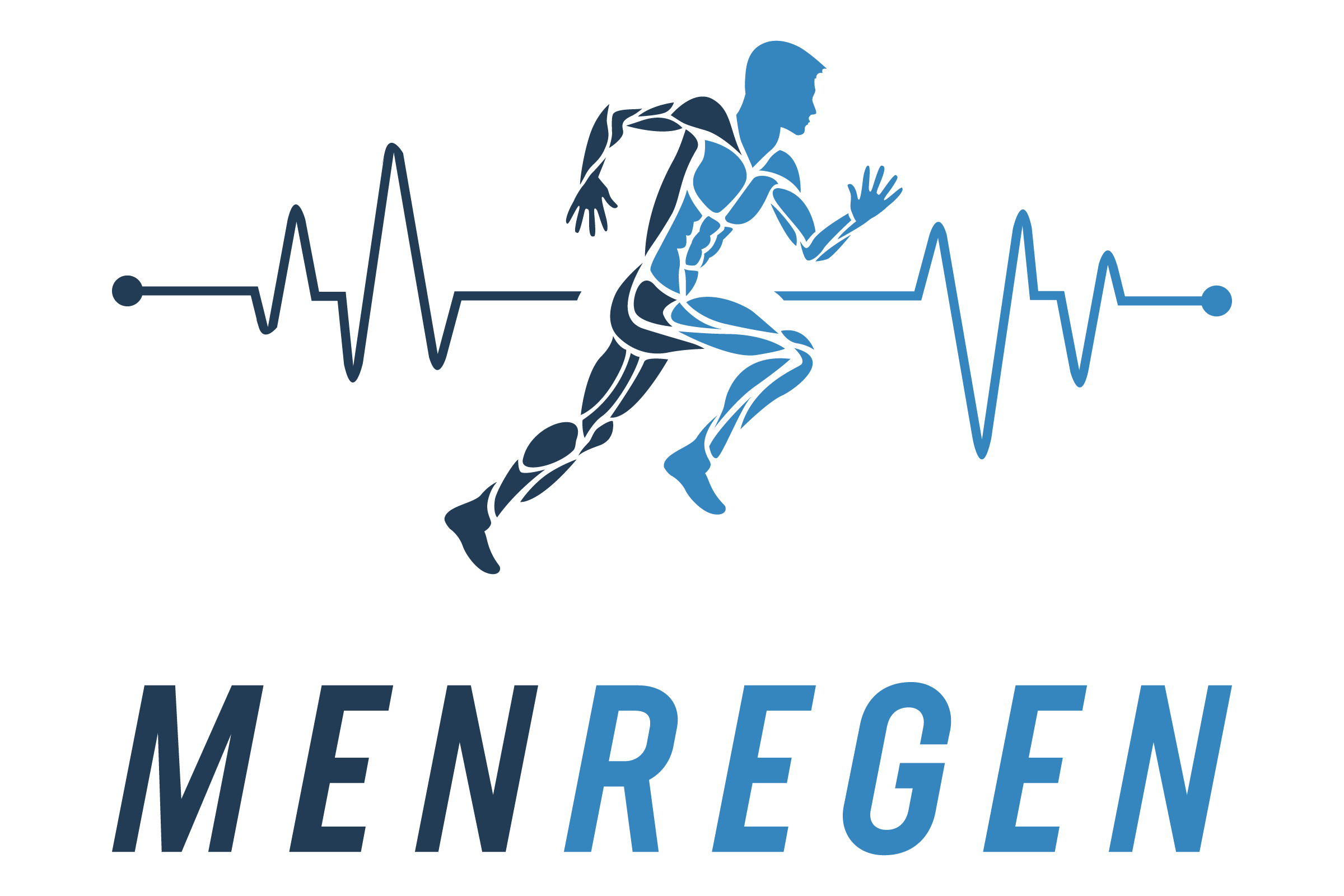Testosterone Replacement Therapy
-
Improved sex drive
-
Increased muscle mass and strength
-
Lower body fat
-
More positive mood
-
Increased energy levels
-
Improve Sleep

What is Testosterone?
Testosterone is known as the male sex hormone and maintaining healthy testosterone levels with Testosterone Replacement Therapy has been shown to lead to longer, healthier lives in men.
What does Testosterone do?
Testosterone isn’t just a sex hormone. As testosterone levels decline with age, various health problems might arise. Testosterone is essential for sexual function, but has many other uses as well. With receptor sites in the brain, heart and throughout the entire body, testosterone plays a pivotal role for men and women in maintaining lean body mass, skin elasticity, libido, and healthy immune system. Testosterone ensures proper heart function, regulates mood and aids brain function (cognition); it controls blood sugar, regulates healthy cholesterol, controls blood pressure, can prevent heart attacks and even reduces the risk of prostate cancer.
Testosterone also aids in bone growth and anabolic functions, as well as augmenting protein synthesis. The fact that men produce more testosterone than women is evidenced by their increased bone and muscle mass.
Testosterone is responsible for the sex drive of both men and women. As testosterone diminishes with age, so does the sexual functioning in both men and women. Restoring testosterone to youthful levels can reverse this situation. All too often men automatically assume that as they age their sexual capacity will diminish. There is no need to accept this loss of sexuality. Testosterone can play a critical role in helping to preserve and even restore sexual desire and function so that we can live our extended life span with the same excitement and enthusiasm we enjoyed in our youth.
Testosterone Facts
Testosterone optimization results in increased muscle strength and lean body mass, improved sexual response, reversal of impotence, and improved body composition. Testosterone has also been shown to protect against cardiovascular disease, osteoporosis, arthritis and degenerative joint change. It improves the sense of well-being and depressed mood that are frequently seen in andropause (male menopause). It has also been shown to improve memory. Men who receive testosterone optimization consequently report that they feel sexier, stronger and healthier. They state that it makes them feel as they did when they were in their prime.
Benefits of Testosterone
- Muscle mass and bones
- Facial and pubic hair
- Sex drive & sexual performance
- Mood and quality of life
- Verbal memory and thinking ability

Testosterone Optimization
Men who receive testosterone optimization consequently report that they feel sexier, stronger and healthier. They state that it makes them feel as they did when they were in their prime.
Testosterone optimization helps reduce obesity, raise lean body mass, normalize blood clotting and raise the good HDL cholesterol, all of which decrease the incidence of diabetes and cardiovascular disease.
It also prevents cognitive decline and Alzheimer’s disease even better than estrogen does in women. A recent medical study showed testosterone reduced C-reactive protein levels (CRP)—a measurement of inflammation in blood vessels. Testosterone protected against heart attacks and progression of heart disease. As a Board Certified Physician in Family Medicine and a Diplomate of American Academy of Anti-Aging, Dr. Steve Zakany has the knowledge and expertise to maximize your potential for optimal health and well-being through physician-prescribed hormone optimization.
To discover whether you’re a good candidate for Testosterone Replacement Therapy (TRT), you’ll complete a screening questionnaire followed by a comprehensive evaluation and testing of your entire hormonal system. Request an appointment with MenRegen today.
The decision to start TRT is a personal and complex decision. There are many well-documented beneficial effects of maintaining a youthful level of testosterone, and we believe that the preponderance of evidence supports its use in most aging men.
Testosterone Information
Testosterone Replacement Therapy (TRT) Controversies of
Traditional physicians who have not received advanced training in Anti-Aging Medicine typically believe that hormone levels should not be optimized or corrected unless they fall outside the “normal range”. The problem is that the “normal range” is typically not age-specific and includes the range of what 90% of all men tested fall into. This would mean that only 10% of all people tested would be considered either high or low.
Optimal Hormone Levels
Preventive-aging experts worldwide believe that hormones should be corrected to optimal levels for optimal functioning of the mind and body. This corresponds roughly to the 75th percentile of the hormone levels found in a healthy 25-year-old.
Both Total and Free Testosterone studies should be measured to adequately evaluate testosterone levels. Depending on the lab used, approximately 300-1000 ng/dL is given as a normal laboratory range, for men ages 20 to 70 years. Females fell in the range of 15-70 ng/dL. Free Testosterone levels average approximately 2% of the total, 55-200 pg/ml for men, and 1-10 pg/ml for women. Free Testosterone is the more valuable of the two, reflecting the amount of hormone available to perform useful work.
What is a Normal Testosterone Range?
Relying on a 50-year age span (from ages 20 to 70) for a “normal range” is not useful. A decline of 70% from more youthful levels can produce numerous clinical problems, yet is declared “within normal range”. A more accurate approach is using the upper end of the “normal range” adjusted for age. Then maintain these levels over time rather than allowing them to continually decline.
At some point in his life, a man will begin to experience a decline in testosterone levels, both free and total. It may be in his 30’s, 40’s or not until his 50’s; however, it will eventually drop to a lower level than when he was 20. If it drops below 300, then there is no controversy—it should be treated. But what about the 50-year-old healthy male with a total testosterone of 500 ng/dl and a free testosterone level of 100 pg/dl who may have had a level of 800 when he was in his early 20’s? Should he wait until he reaches the “magic” number of 300 for his total testosterone level before he starts TRT? Or is it sufficient that his level has already dropped over 35%, and he notices he has been having trouble building muscles at the gym, and having a tougher time keeping weight off his waist? This is the center of the controversy.
Two questions come to mind when considering this controversy. First, are there benefits to raising a testosterone level from 500 to 800-1000 ng/dl? If so, are there any significant risks, both short- and long-term, in maintaining this level of testosterone with therapy?
A number of studies have been done in healthy young men in whom doses of testosterone were given that raised their levels into the high adolescent range, 1000 to 2000 ng/dl. In all of these studies, lean muscle mass increased and fat mass decreased. Similar studies with lower doses have been done in moderately obese men; again, lean mass increased and fat decreased even more. Moreover, insulin resistance (a pre-diabetic state) improved, triglycerides decreased, and energy increased. None of these studies noted any increase in aggressive behavior that many people expect might happen with high doses of testosterone.
Many more studies have been published showing similar effects in older men (over 65) with mildly low testosterone levels. The National Institute of Aging (NIA) published the results of studies of TRT on body composition (lean muscle and fat ratios) in 108 men which demonstrated a 6 lb. fat loss and 5 lb. lean muscle gain when the testosterone level was raised from an average of 370 to 640 ng/dl for 36 months. The same men had an increase in bone density if they started out with a low bone density. The accumulating evidence shows that whenever you raise the testosterone level—no matter what the starting level—you get benefits in body composition. We think that the dose of testosterone used in this study was too low and that if a higher dose had been used even more impressive results would have resulted without any significant increase in adverse effects.
Does TRT have Risks?
Short-term risks, or what we call side effects, are minimal. If a man had a propensity to develop acne as a teenager, this may be reactivated when the testosterone levels are raised to adolescent levels. This can be effectively treated with topical or oral medications. The tendency to lose scalp hair can be exacerbated as well, but this also can be effectively treated with a medication that inhibits the conversion of testosterone to dihydrotestosterone called Finasteride or Propecia™.
The main concern that men have with regard to long-term TRT is whether it will increase the risk of prostate cancer, BPH and cardiovascular disease. At physiologic replacement levels—the range we keep our patients within—there is no evidence of any increased risk of prostate cancer or enlargement of the prostate to the point of symptoms. It is true that the longest prospective study is the three-year NIA study—which didn’t show any prostate problems—but, the overwhelming majority of case-controlled, retrospective, epidemiological studies following men for many years showed no increased risk in men whose testosterone levels are higher than average. The concern about TRT increasing the risk of prostate cancer stems from the well-documented fact that prostate cancers shrink if you deprive them of testosterone; however, as with breast cancer, this does not prove a causal or initiating role. If one does have an occult (as yet undetected) cancer, then it may cause it to grow, but we screen all our patients with a total PSA before starting TRT which we continue to monitor.
What are the Links?
Short-term risks, or what we call side effects, are minimal. If a man had a propensity to develop acne as a teenager, this may be reactivated when the testosterone levels are raised to adolescent levels. This can be effectively treated with topical or oral medications. The tendency to lose scalp hair can be exacerbated as well, but this also can be effectively treated with a medication that inhibits the conversion of testosterone to dihydrotestosterone called Finasteride or Propecia™.
The concern about a link between testosterone and heart disease comes from the following line of thinking: men have a higher incidence of heart disease than women; men have higher testosterone levels than women; therefore, higher testosterone levels may cause a greater incidence of heart disease. This is another example of the fallacious reasoning that plagues the field of hormone replacement therapy.
Because two conditions are found in the same population, it does not necessarily follow that the one causes the other. For these two conditions—testosterone levels and heart disease—we have, in fact, the results of many studies that show just the opposite. This has been studied extensively and there is a greater incidence of heart disease in men with low testosterone levels than those with high levels. More dramatic evidence comes from the fact that giving testosterone intravenously during angina results in improvement in symptoms. Other studies have looked at the effect of TRT on cholesterol levels and have universally found a decrease in total cholesterol, LDL (bad cholesterol), and triglycerides, and no change or only a slight decrease in HDL (good cholesterol). And, as mentioned above, restoring youthful testosterone levels can reverse the metabolic syndrome that can increase the risk of cardiovascular disease.
Testosterone and Steroids
We want to clarify some misconceptions about what testosterone is and is not. While testosterone is a member of the group of compounds known as ‘anabolic steroids—the muscle and bone building molecules—it is different from steroids often abused by professional athletes. These include deca durabolin, oxandrolone, and methyltestosterone which differ from testosterone in their molecular structure and are not normally found in the human body. These are potent anabolic hormones, but they can have adverse effects on other organ systems, such as the brain and liver, due to this changed structure; therefore, while they have similar muscle-building effects, the side-effect profiles are not comparable. Because unscrupulous doctors and black marketers sold these drugs in high doses to young men and professional athletes, they, and testosterone along with them, became regulated as Schedule II substances like morphine and other narcotics. This has tarnished testosterone’s image amongst doctors and the public to the detriment of many who would benefit from responsible well-monitored TRT.
So, as you can see, there are many controversies regarding TRT, despite numerous well-documented benefits and minimal risks. The specialists at MenRegen believe that all men regardless of age will benefit from optimizing their testosterone levels to the 800-1000 range.
Our Location
LOUISVILLE CO OFFICE
317 W. South Boulder Road, Suite 1 Louisville, CO 80027
Main office line: 720-710-8859
Monday – Thursday: 9:00am – 5:00 pm
Friday: 9:00 am – 4:00 pm
Saturday: 9:00 am – 2:00 pm
Sunday: Closed
Evenings & other weekend times by appointment


